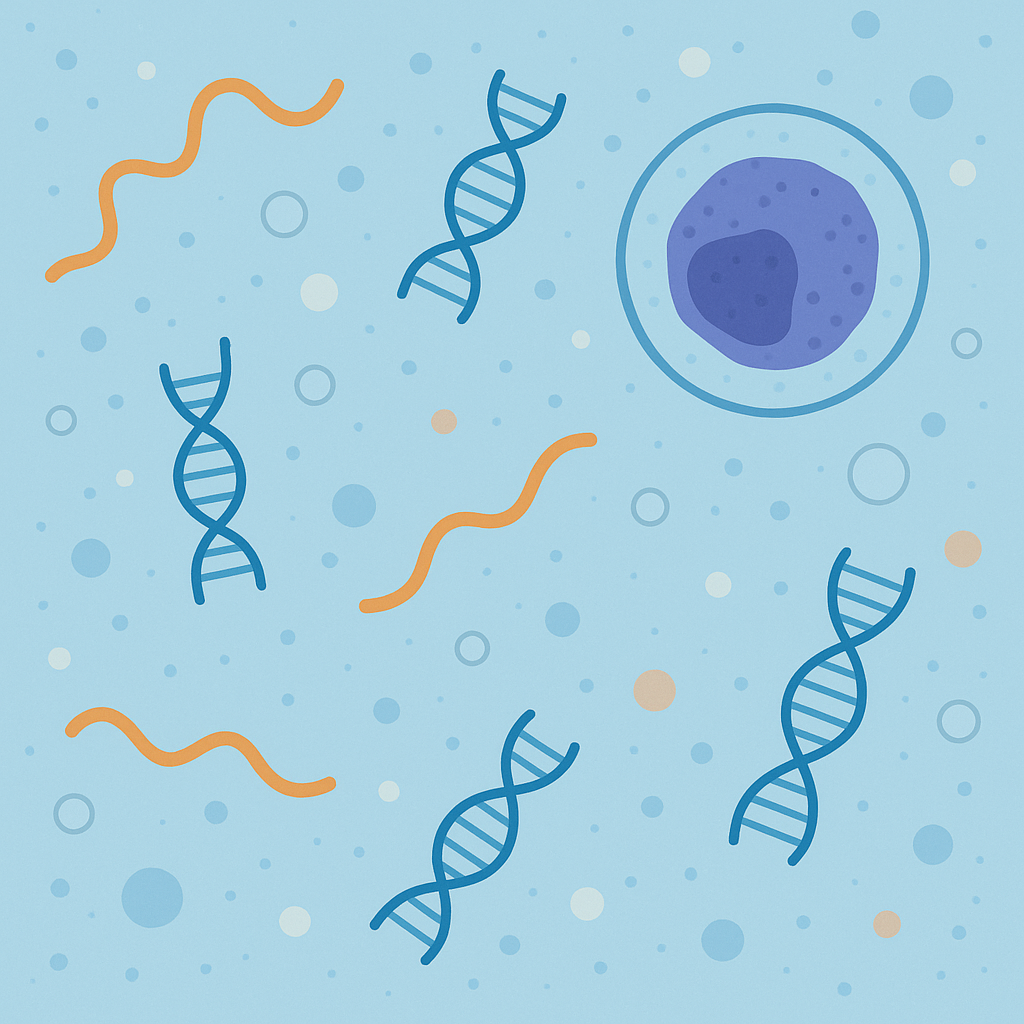The informational value of plasma analytes composition
Cell-free nucleic acids to advance molecular diagnostics

Cell-free nucleic acids to advance molecular diagnostics

Cell-free nucleic acids (cfNAs), such as circulating cell-free DNA (cfDNA) and RNA, are fragments of genetic material found in blood plasma and other bodily fluids. Their discovery and clinical application have transformed molecular diagnostics, enabling non-invasive testing for a range of conditions.
Today, cfNAs are at the forefront of precision medicine, offering a window into health and disease through a simple blood draw. Double-Strand LLC is building on this legacy to discover novel biomarkers for next-generation diagnostics.
Identifying novel cfNA biomarkers using advanced sequencing and bioinformatics.
Creating sensitive, reliable tests for clinical applications.
Rigorously testing our biomarkers to ensure accuracy and impact.